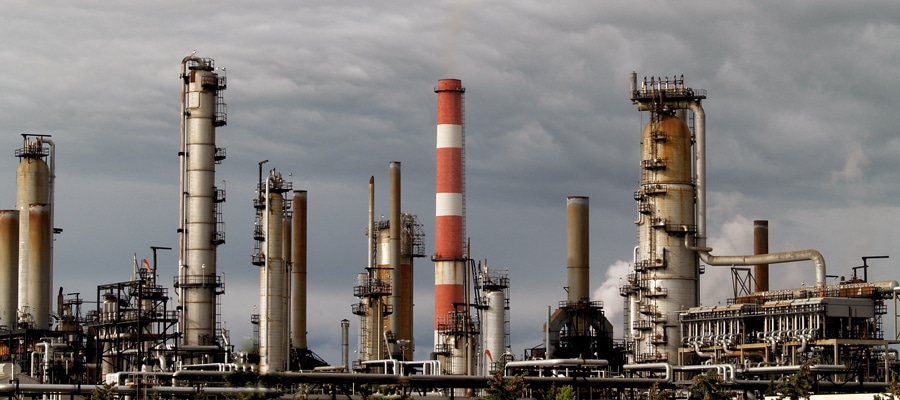Alberta’s energy war room reveals its true colours as a propaganda mill

Last week my report “Reassessment of Need for the Trans Mountain Expansion Project” was published by the Parkland Institute and Canadian Centre for Policy Alternatives (CCPA). The Canadian Energy Centre (aka Premier Jason Kenney’s “War Room”) took exception to my report and wrote a hit piece designed to discredit it,“A Matter of Fact: CCPA report against Trans Mountain misleading, incorrect”.
As background, I am a scientist with degrees in geology who has spent more than four decades in the energy industry in Calgary, including 32 years with the Geological Survey of Canada. The hit piece was written by Deborah Jaremko, a journalist hired by the war room in January, who has no scientific expertise and whose experience consists of working for a series of energy publications, including “Oilsands Review” and “JWN energy.”
The article is a classic propaganda exercise in erecting straw men and spreading disinformation:
War room claim 1: “The CCPA report is not independent.” The CCPA paid me nothing to write the report. Ninety-five per cent of my time on the project was unpaid volunteer effort. Neither Stand (which provided some financial support for my research) nor the CCPA had any direction whatsoever in the research. On the other hand, one could ask Ms. Jaremko who pays her salary at the war room to promote narratives of environmental groups conspiring against Alberta’s energy industry.
War room claim 2: “Global oil demand has already nearly recovered to rates prior to the COVID-19 lockdowns.” This is a straw man argument as my report did not assume any demand reduction from COVID-19 and was based on oil production forecasts made before the COVID-19 pandemic from the Canada Energy Regulator (CER), Canadian Association of Petroleum Producers (CAPP) and the International Energy Agency (IEA). The Alberta Energy Regulator’s (AER) forecast, published in June 2020 and which did not assume demand reduction from COVID-19, was also used for comparison.
War room claim 3: “Oil demand is expected to continue rising over the next two decades.” This is another straw man argument as I used Canadian oil production forecasts made before the pandemic. The CER forecast shows production growing through 2040.
War room claim 4: “Even during COVID, the existing Trans Mountain Pipeline has been running at full capacity to meet customer demand.” Yet another straw man argument, as I said nothing about the existing pipeline, which I have pointed out to CBC is needed as it provides refined products to southwest BC, crude oil to Burnaby and Washington State refineries and some tanker exports mainly to the US West Coast. My report is about tripling the pipeline’s capacity and the fact that it is not needed and doesn’t make any economic sense.
War room claim 5: “One of CCPA’s key conclusions is that TMX is being built to grant Canadian oil producers large-scale access to Asian markets, where they claim prices are not high enough to warrant the project’s development. What they are missing is that TMX is not about Asian markets in isolation.” This amounts to back-pedalling on the key claims used by government to justify TMX. TMX has always been about Asia paying higher prices, when in fact it pays lower prices. As noted by CBC “[TMX] would transport product directly from Alberta’s oil patch to coastal BC for shipping to markets in Asia”. The India and Spain examples pointed out in the hit piece change nothing – India is part of Asia and transport costs to Spain via TMX would create an even bigger discount. Bottom line – TMX will not garner higher prices, which has always been the government and industry argument for building TMX.
War room claim 6: “The CCPA report includes unlikely assumptions about crude-by-rail traffic and development of new refining capacity in Alberta. The report states that the 590,000 barrels per day of new capacity out of Alberta on TMX is not needed, primarily because it can be met using rail and new refining projects.” This is false – my report said nothing of the sort. My report said production can be met with announced optimizations/expansions of existing export pipeline capacity with Alberta’s 100 Mt/year emissions cap, the latest legislation for which was enacted in January 2020. Neither TMX nor Keystone XL are needed to meet existing oil production forecasts through 2040 and that is without rail.
War room claim 7: “CCPA projects a massive increase in crude by rail traffic, forecasting 830,000 bbls/d will run on rail starting in 2020, for the next 20 years.” Again, this is absolutely false. Had Ms. Jaremko looked at the report she would have seen that no rail will be needed through 2040 to meet existing oil production forecasts with the legislated Alberta oil sands emissions cap.
War room claim 8: “CCPA’s assumptions also include that Alberta will consume significantly more oil within the province, adding two expansion phases to the new Sturgeon Refinery. In 2018, the project’s owners withdrew the proposal to expand the project, so it’s hard to see how the new phases will happen in due course.” The Sturgeon refinery did not permanently cancel the expansions which were always part of the project – the 2018 article Ms. Jaremko links says the expansions were put on hold “for now.” My assumptions were for very modest expansions in 2025 and 2030 in Alberta’s refining capacity.
War room claim 9: “IHS Markit reports that since 2009, the weighted average emissions intensity of oil sands projects has fallen by 20 per cent, from 88 kilograms of carbon dioxide equivalent per barrel (kgCO2e/bbl) to 70 kgCO2e/bbl.” Another straw man argument, as I said nothing to the contrary. To project the emissions of the CER oil and gas production forecast forward to 2050, I used the average emissions per barrel of oil equivalent over the most recent four years, all of which were less than the hit piece’s final 70 kgCO2e/bbl for the oil sands – I used 38.1kgCO2e/bbl for mined bitumen, 68.7kgCO2e/bbl for in situ bitumen and 65.9 kgCO2e/bbl for upgraded bitumen.
War room claim 10: “The existing Trans Mountain system has operated for nearly 65 years without a single spill from marine tanker operations.” Yet another straw man argument, as I made no claim to the contrary in my report.
War room claim 11: “TMX has substantial support from Indigenous communities.” I made no claims one way or another in my report.
War room claim 12: “TMX construction is already contributing to Canada’s economic recovery from the COVID-19 pandemic. As of September 30, 2020, there were approximately 6,730 people working on the project. Approximately 785 workers hired to date are Indigenous people.” Irrelevant as I did not discuss jobs in my report. In any event, these jobs will last for only two to three years during construction. Kinder-Morgan anticipated TMX will result in a total of only 90 permanent jobs in BC and Alberta.
This hit piece from Premier Kenney’s war room is a sad commentary on rational discourse and exposes the war room for what it is – a propaganda arm of the energy industry. It’s disturbing that the Alberta government, through its war room, would try to distort and squelch legitimate debate on the expenditure of $12.6 billion in taxpayer funds along with the long-term energy and emissions reduction needs of Canada.
I am concerned for the long-term future of this country and the future energy and climate security of my four grandkids, as well as the rest of the planet. Premier Kenney’s $30-million war room is an exercise in spreading self-serving inaccuracies and falsehoods.
This post is part of the Corporate Mapping Project, a research and public engagement project investigating the power of the fossil fuel industry in Western Canada, led by the University of Victoria, the Canadian Centre for Policy Alternatives (BC and Saskatchewan Offices) and Parkland Institute. This research is supported by the Social Science and Humanities Research Council of Canada (SSHRC) and the Minor Foundation for Major Challenges.
Topics: Climate change & energy policy, Environment, resources & sustainability, Transparency & accountability


